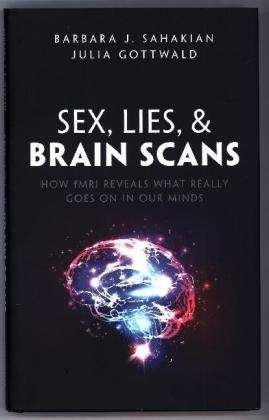Read more
Zusatztext Rich coverage of behavioural research Informationen zum Autor Barbara J Sahakian is Professor of Clinical Neuropsychology at the University of Cambridge Department of Psychiatry and the Behavioural and Clinical Neuroscience Institute. She is also an Honorary Clinical Psychologist at Addenbrooke's Hospital, Cambridge. She holds a PhD and a DSc from the University of Cambridge. She is Past-President of the International Neuroethics Society, Past-President of the British Association for Psychopharmacology, and a Fellow of the Academy of Medical Sciences. Sahakian is also a Member of the International Expert Jury for the 2017 Else Kröner-Fresenius-Stiftung Prize and a member of the World Economic Forum Global Agenda Council on Brain Research. She is co-author of Bad Moves: How decision making goes wrong and the ethics of smart drugs (OUP, 2013), with Jamie Nicole LaBuzetta, and co-editor of The Oxford Handbook of Neuroethics (OUP, 2011), with Judy Illes.Julia Gottwald is a PhD student at the University of Cambridge in the Department of Psychiatry. She has a strong interest in interdisciplinary research and holds academic degrees in Biochemistry from Free University (Germany) and Neuroscience from the University of Oxford. She is enthusiastic about science communication and is involved in public engagement events, such as Pint of Science and the Cambridge Science Festival. She won the BAP Public Communication Prize 2016 for communicating science to the public, and her 800-word article explaining her research to the general public was shortlisted for the Max Perutz Science Writing Award 2014. Klappentext The potential of fMRI is extraordinary. It allows us to observe brain activity in real time! build an understanding of thoughts and motivations and discern unconscious biases. In short! we can now 'read minds.' The authors explain the science and consider the ethical implications of using these techniques. Zusammenfassung The potential of fMRI is extraordinary. It allows us to observe brain activity in real time, build an understanding of thoughts and motivations, and discern unconscious biases. In a limited but real way we can now 'read minds'. Barbara Sahakian and Julia Gottwald explain the science, and consider the ethical implications of using these techniques. Inhaltsverzeichnis 1 How does neuroscience impact society?; 2 Can neuroscientists read your mind?; 3 A racial bias hiding in your mind?; 4 The perfect lie detector?; 5 How moral is your brain?; 6 Are you in control?; 7 Show me your brain and I know what you buy?; 8 Where does this leave us?; Bibliography; Index ...

